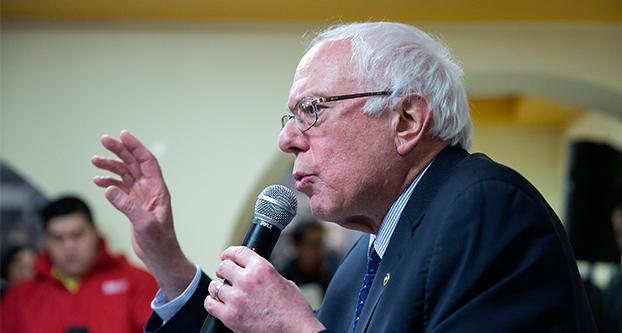Bernie Sanders and Hillary Clinton went head-to-head in South Carolina Sunday at the Democratic debate. The leading topic: health care.
Just two hours prior to the start of the debate, Vermont Sen. Sanders unveiled a new plan for health care in America. This new plan would end privatized insurance and make health insurance an entity composed by the federal government. Sanders calls it, “Medicare for all.”
Sanders’ new initiative would be a universal single-payer health care system. It would erase copays, deductibles and cover a plethora of services, including preventative care and pre-existing conditions.
Controversy was sparked over the proposed system when the moderator Andrea Mitchell asked former Secretary of State Clinton if she thought that Sanders’s bill would “kill Obamacare.”
Clinton responded: “We finally have a path to universal health care. We have accomplished so much already. I do not want to see the Republicans repeal it, and I don’t want to see us start over again with a contentious debate. I want us to defend and build on the Affordable Care Act and improve it.”
Clinton referred to the attempt earlier this month when President Barack Obama vetoed another bill attempting to repeal parts of Obamacare. This was the sixth time Obama has vetoed a measure attacking the Affordable Care Act.
Her argument is that asking for progressive change whilst still facing attacks from the right wing could leave an opening for a Republican Congress to overturn the strides already accomplished.
Clinton said that health care costs were “the lowest they’ve been in 50 years.” When fact checked afterward, it was found that costs have actually continued to increase, just at a slower rate.
Clinton stuck to her guns about building on the Affordable Care Act and not “tearing up” the current health care system.
Sanders retorted, “No one is tearing this up. We’re going to go forward. But what the secretary neglected to mention, not just the 29 million who still have no health insurance, that even more are underinsured with huge copayments and deductibles.”
In Sanders’ press release regarding his new plan, Gerald Friedman, a leading expert on health care costs and an economist at University of Massachusetts at Amherst, estimates Medicare for all would save the nation $6 trillion over the next 10 years, compared with the current system.
The new plan would not only be saving money for the federal government, but according to the campaign, it would be putting more money back into the pockets of middle-class Americans.
Sanders’ plan is to raise taxes on the upper class. The average family earning $50,000 a year would pay $466 annually. Individuals making $250,000 to $500,000 a year would be taxed 37 percent. Individuals making more than $10 million a year would be taxed 52 percent.
This plan would be mostly paid for by the wealthiest Americans. His campaign says that this high tax will only fall on about 13,000 American households.
For what is not covered by taxing the richest members of America, there would be a 2.2 percent tax increase on earnings, as well as employers paying a 6.2 percent health care payroll tax. Sanders’ campaign assures business owners this tax would also save them money.
Clinton was quick to point out during the debate that Sanders has tried to pass similar bills through Congress nine times, to no avail.
Moderator Mitchell also pointed out Medicare for all did not pass in Sanders’ home state of Vermont, either.
Sanders faces much censure from critics as he releases a new health initiative so close to the Iowa caucuses.




